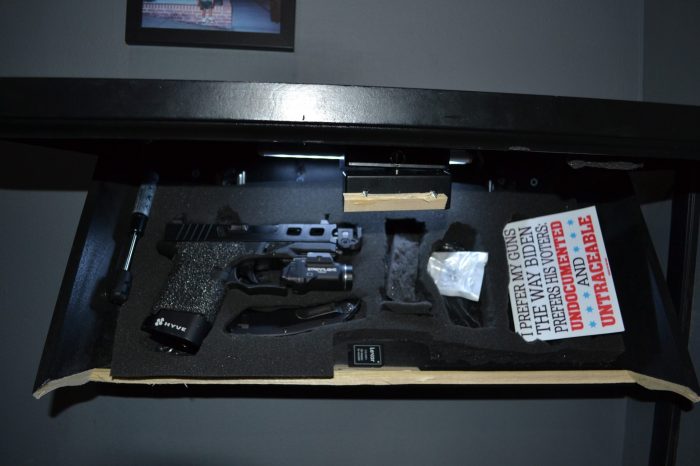Former football coach and NFL player Bill Curry recently brought a wealth of experience, knowledge and history to a wide audience of student-athletes and coaches at Hofstra University for a lesson on diversity, tolerance and respect in high school athletics.
Director of the NYS PHSAA Sportsmanship Committee and Manhasset High School Athletic Director Jim Amen Jr. established the summit and invited Curry as keynote speaker.
Amen Jr. and Section VIII Executive Director Nina Van Erk introduced Curry to a crowd representing more than 37 local high schools.
Gathering in the David S. Mack Sports Complex on Friday afternoon, Curry took the young minds through his childhood up until his current age of 71. Speaking on self-discipline, disappointment, drug abuse, and racism, he shared what he calls “the miracle of the huddle.”
“We put guys that have been raised to hate in the same color shirt, and we sweat and bleed together, and give it every ounce we have in ourselves,” Curry said. “What happens to those people that thought they hated each other, they begin to love each other and become like brothers for the rest of their lives. I’ve seen it a thousand times, and it’s happened to me.”
A graduate of Georgia Tech, Curry had a 10-year career in the NFL, playing for the Green Bay Packers, Baltimore Cults, Houston Oilers and Los Angeles Rams, He spent 17 years coaching at Georgia Tech, Alabama, University of Kentucky and Georgia State. He was an ESPN football analyst for 11 years, and has been married for 51 years.
Drawing the undivided attention of the 100-plus audience members, Curry shared pearls of wisdom which he has gathered into his book, Ten Men You Meet In The Huddle.
He distinguished two types of pain in life—the pain of discipline and the pain of regret. “That discipline to be the center and do the blocking was imposed upon me at 13 years old,” Curry said. “It was continually imposed upon me until I learned to internalize that discipline.”
He discussed “magnanimitas,” a Latin word which means “greatness of spirit.”
Utilizing the uniqueness of one’s fingerprint, Curry encouraged everyone to develop their magnanimitas. “If you haven’t learned to develop the greatness of your spirit, and learned to give it to a cause greater than yourself,” he said, “then you will never be the human being you are meant to be.”
Curry also coined a phrase, the fellowship of the miserable, explaining: “these are the people that love to see you so they can tell you that you have no chance at succeeding at something.”
As a center, a position Curry opposed taking, he hiked the ball to legendary hall-of-famers, Roger Staubach, John Huarte, Bob Timberlake, Craig Morton, Bart Starr, Bob Griese, Johnny Unitas, and many others. Also Joe Namath, who remains a close friend.
“I had the privilege of being in the huddle with every single one of them,” Curry said, “and it would have never happened if I hadn’t been stuck with the position that I didn’t want to play.”
Curry reflected on his mistakes, such as cutting his 8 a.m. chemistry class in high school. Punishment came from the coach, who made him run the stadium steps 50 times at 5:30 a.m. “I never cut another class,” Curry said. “My football coach loved me so much that he wasn’t going to allow me to self-destruct because I couldn’t see my own potential.”
Curry offered up the cautionary tale of Leonard Kevin “Len” Bias, who died in 1986 from cardiac arrhythmia induced by a cocaine overdose after being drafted by the Boston Celtics, saying Bias was the greatest athlete he’d ever seen in college sports.
“The night he tried cocaine for the first time was his last night on earth,” Curry warned. “Anybody that comes up to you and says they’ve got some good stuff for you…that’s not your friend.”
While racism was widespread and incorporated into practices common at the time, Curry said Vince Lombardi hated racism. “Most NFL teams has one or two African American players on a 40 man roster,” Curry said. “Lombardi wouldn’t tolerate that, he would have had 40 on a 40 man roster if they were a good person and could play football.”
In an honest account, Curry admitted that for a time he didn’t like the storied coach of the Green Bay Packers, didn’t play well for him and criticized him. He visited Lombardi on his death bed seeking reconciliation.
“He forgave me when I least deserved it,” Curry said, adding, “unexpected and undeserved acts of kindness by human beings can change lives.”





























